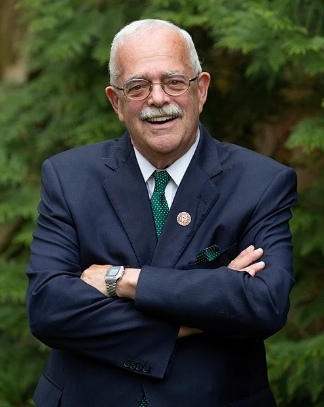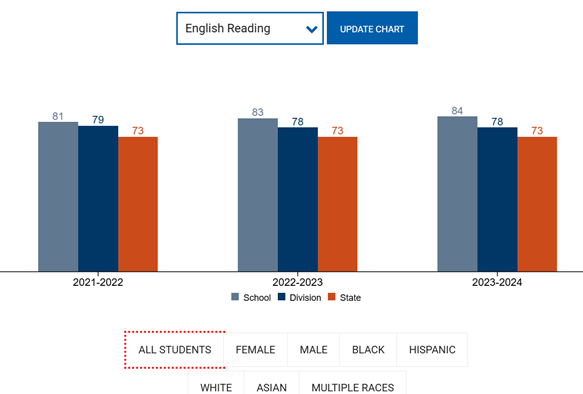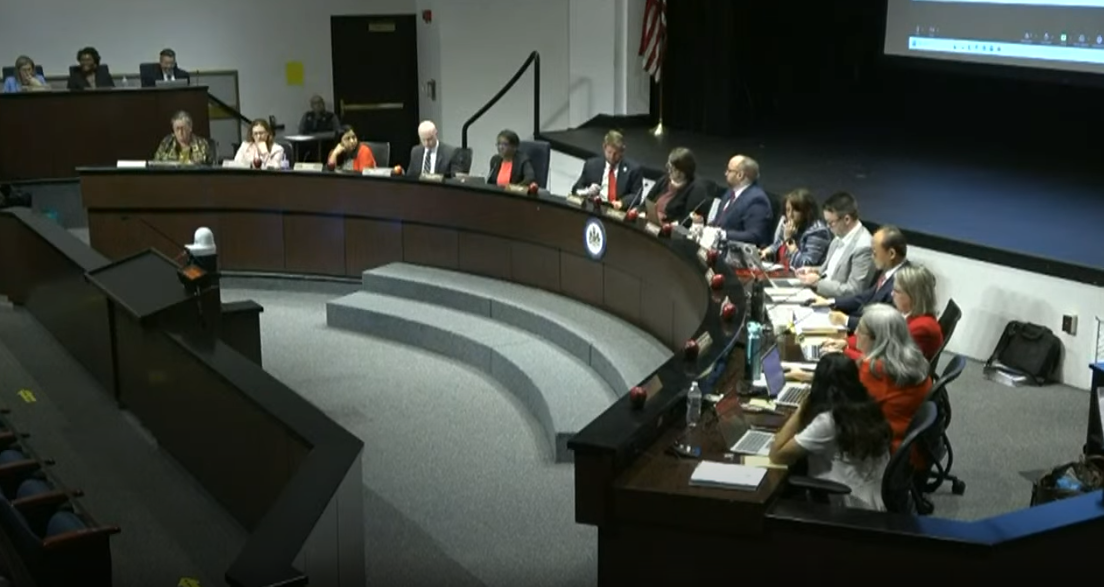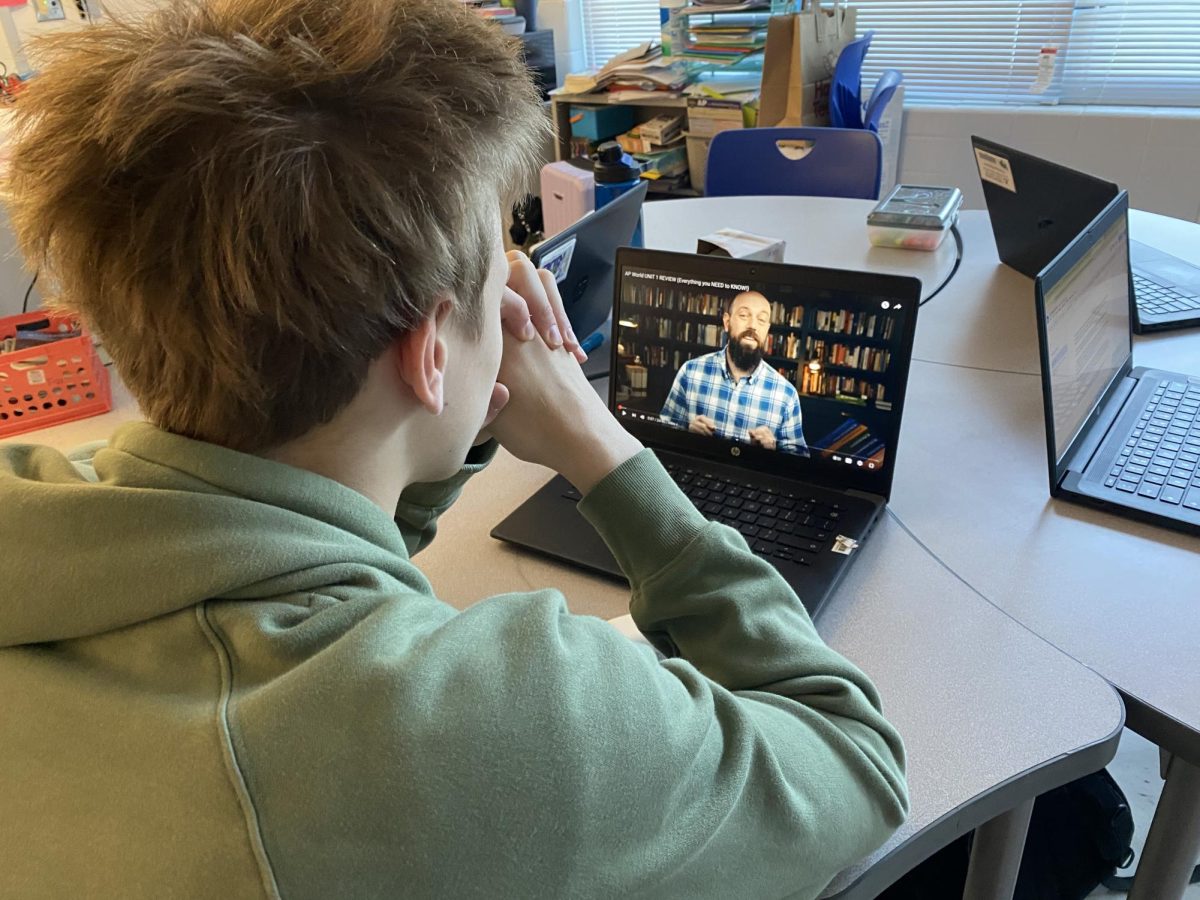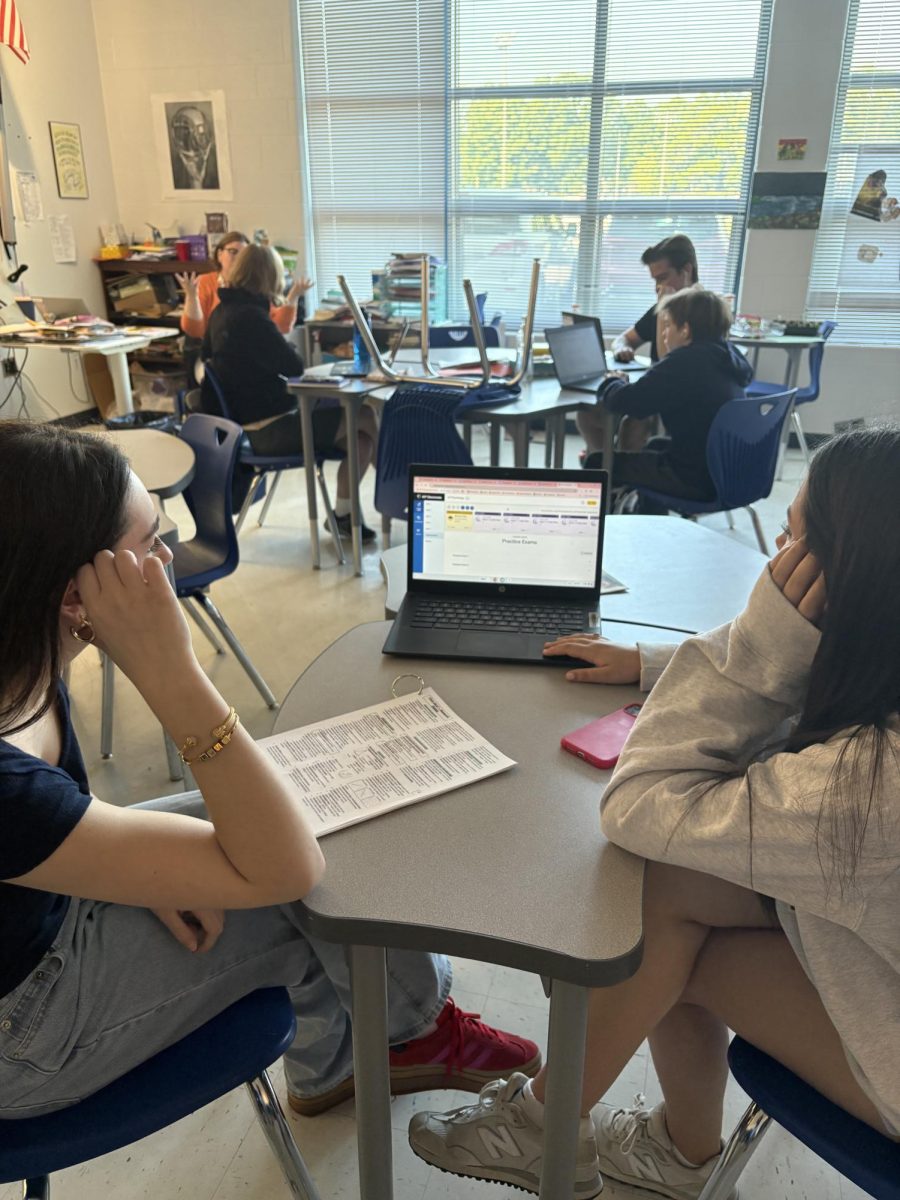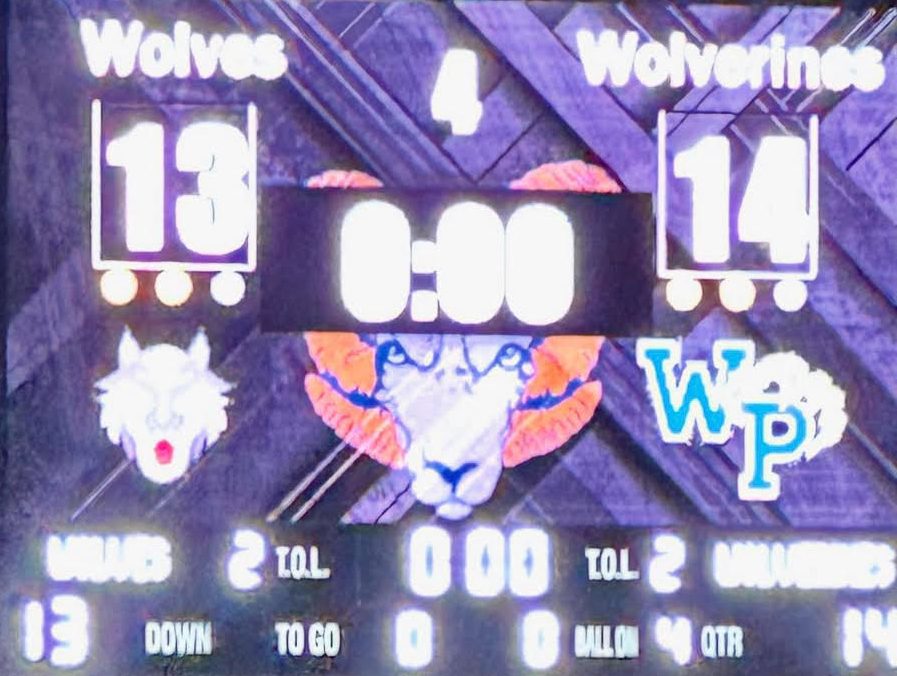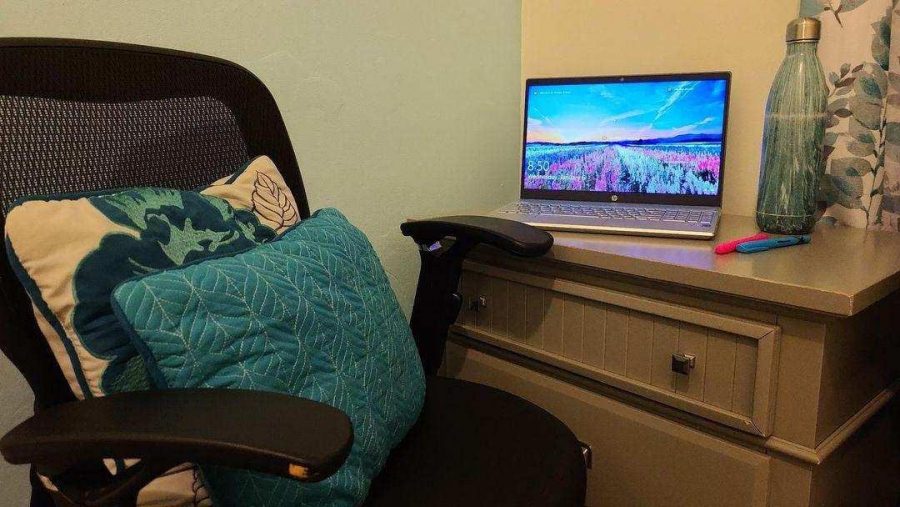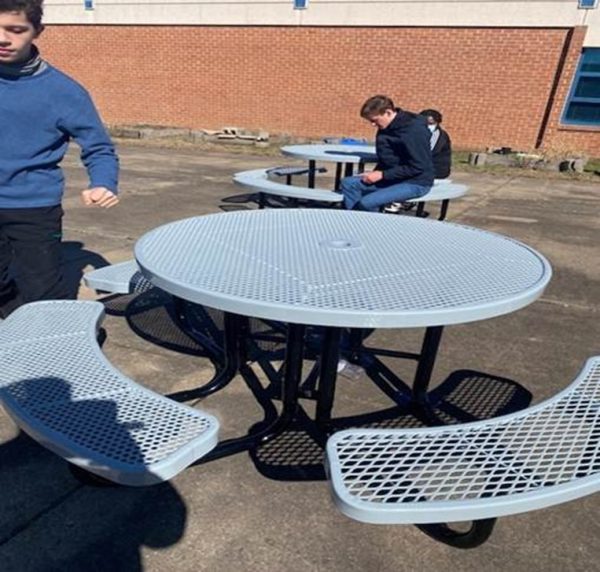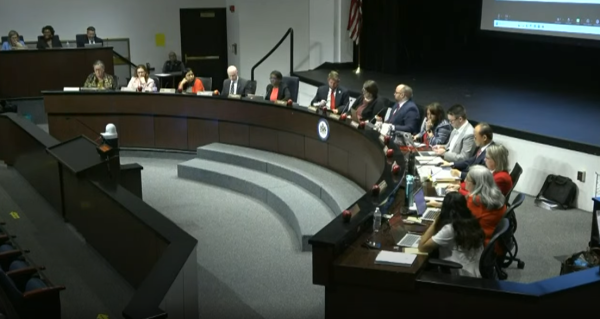At The Halfway Point: A Look Back at a Semester of Virtual Learning
As the school year hits the halfway point and students start preparing to go in person, a look back at the past few months is in order. This school year has been different for all of us and has forced us to adapt to new changes in our lives. Everyone has adapted differently and views online learning in many different ways.
On the negative aspects of online learning, many students comment that it has become draining and stressful, mainly due to the overwhelming workload some face. Junior Amanda Capper says, “One of things I don’t like about it is the amount of homework teachers give out. If teachers were to give out less work, not only would it be easier on the teachers with grading work, but it would be easier on the students mentally and emotionally.”
Junior Sara Arif says she doesn’t like working from home and that it is hard to stay motivated at times. She compares it to in person school saying, “In person school keeps you motivated because you’re in school and you just have to do it.”
Additionally, with some students participating in activities outside of school, keeping track of homework and assignments can be challenging. “The amount of work teachers supply us is unfair, knowing that we have other activities to attend on the side,” Junior Yasmine Issa says.
Online learning is also tedious and can make everyday feel the same. Issa says, “What I dislike about virtual learning is being in the same environment everyday. When online school started, I found myself enjoying virtual classes due to being in the comfort of my own home, but then it got repetitive.”
English teacher, Mr. Howe, says, “What I don’t like is that I don’t get to actually see the live children because they turn off their cameras.” When students turn their cameras off, it complicates the interaction between students and teachers.
“Sometimes I find that it’s challenging to get kids to interact and to engage,” Howe says. “And you can’t really tell that they’re there because they don’t have their cameras on and they’re not participating in the oral discussions.”
Online learning does have positive aspects as well, such as the many online resources that are available for us, which can make navigating online information easier. Capper says she likes how, “Students can always rewatch the lessons if we miss any information.”
This is an advantage, especially for those who miss class for whatever reason.
Virtual learning is also beneficial because of the time it has given us to reflect and care for ourselves. This is extremely important, especially during these uncertain times. Issa says, “What I do like about online learning is the amount of time I get for myself. When we had in person learning, I was unable to focus on my mental health”
For Howe, he likes not having to drive to work. This is a great factor, as transportation can be complicated for some and it makes attending school easier. Howe also adds, “I like the direct interaction between myself and the students, probably more so than in the classroom.”
People have adapted differently to online learning in various ways and have varying ways of approaching it. It’s important to adapt according to your needs, in order for you to strive. Arif says, “I started writing stuff down, rather than just keeping it in my head. It’s easier for me to see what assignments I have.”
Issa comments, “I adapted by spending a specific amount of time doing school work, and other times having fun or physical activity. This is also called time management.”
In order to adapt to the transition to online, many teachers have changed how they present information to students and have to find certain resources for them to use. Since he can’t hand out actual books to his students, Mr. Howe explains how he had to find a PDF version of a book, “This was a bit of a challenge because some of the books are just starting [to be] available as PDFs. And some of them create advertising nightmares if you open them.”
Additionally, when asked on whether they like in person or online better, many said they prefer in person. Capper says, “In person, because we get to talk to our friends more and actually be around people.” Howe agrees that he also likes in person better, “I miss the days when you could actually hug a student. Some kids need hugs.”
Adeline Sauer is a determined senior who brings diverse interests and a strong work ethic to journalism. She is one of the School and Student Issue Co-Editors...



